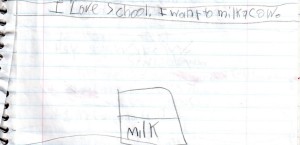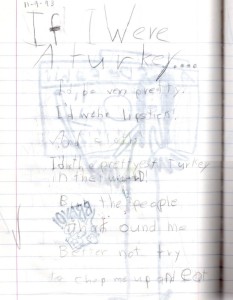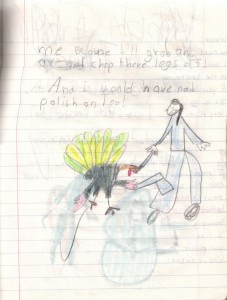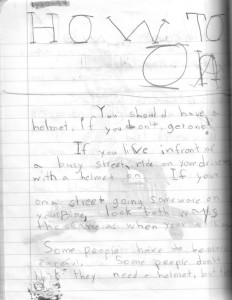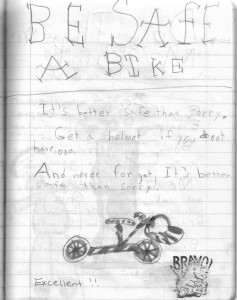Life is hard.
And it’s harder when we’re anxious. We might, for instance, imagine an event that hasn’t actually happened and become preoccupied by thoughts about it. We might replay something that has happened to us, over and over, and — without awareness of this — fabricate the details that the facts we’ve collected can’t confirm or deny (like Joe Shmoe’s thoughts or intentions). After awhile, we might feel like we’ve lost control of the thoughts. And by then, though what we’re thinking hasn’t actually happened to us, we actually feel the feelings we’d feel if it had. And though we can’t know Joe’s thoughts or intentions, we react as though our assumptions about his thoughts and intentions are correct.
It’s no way to live (and I can say that because I’ve lived it). It is, however, a power a person can learn to harness. In the moment — the instant you realize what you’re doing — you might try asking yourself some questions.
1. Is what you are thinking about relevant to your life today, this hour, this minute? (Do you need to be thinking these thoughts right now? Do you need, right now, to be making the plans you’re making?) Because it’s natural to wonder whether you’ll get the new job or you won’t, but dwelling on it while you are responsible for other things (i.e. being present for your spouse, your child, your current employer) robs you (and them) of your presence and attention. Kick it up a couple anxious notches: it’s natural to think a lot about how sad it will be when your dog dies if your dog is, in fact, dying. It is not, however, necessary to think a lot about it if your dog is at no immediate risk of dying, or if you are, for example, not actually a dog owner. When you ask “Is this relevant?” and your answer is no, say STOP (out loud if it helps, unless you’re the passenger in a moving vehicle — that usually ends badly.). Then get busy or selfless and see what happens. But when you ask “Is this relevant?” and your answer is yes, move on to the next question.
2. Is what you are thinking about rational? (What evidence do you have that proves there is truth to what you’re thinking? What evidence do you have that proves there isn’t truth to what you’re thinking?) Let’s say you texted your significant other this morning, and it’s lunch time now, and he or she still hasn’t responded. For somebody who tends toward anxiety, a thought might pop into his or her head. It starts out like this: “Well that’s strange.” And, usually pretty quickly, it turns into this: “How dare she give me the cold shoulder! I so bet she’s gonna dump me. This is completely ridiculous.” All the information he has is a) I texted her and b) she hasn’t responded. What that makes “How dare she give me the cold shoulder!” and “I so bet she’s gonna dump me.” and “This is completely ridiculous.” is a set of assumptions, otherwise known as details he fabricated. He has no proof there is truth to his thoughts. There are a lot of facts he doesn’t know, and one of them might be that her phone is off, or she left it at home. When you ask “Is this rational?” and your answer is no, say STOP. Then get busy or selfless and see what happens. But when you ask “Is this rational?” and your answer is yes, move on to the next question.
3. Is the time (and energy!) you’re spending devoted to the thoughts you are thinking worth it? (What good comes from thinking the thoughts? How does thinking the thoughts help your situation? Are there other things you could do that would be more productive?) You got the call, and learned you didn’t get the job. You need a job (a belief that is rational). But now, you stew. You might even seethe since you wanted that job, and, frankly, would have kicked it in the pants. So you think, a lot, about how unjust it is that you didn’t get it. How much better at the job you think you’d be than the person who did get it. How the company’s going to suffer without your expertise. And you think about it for hours. What good does it do you? How far toward getting a job does it push you? Are there other things you could do with that time and energy? Is what you are expending on this worth it? When you ask “Is this worth it?” and your answer is no, say STOP. Then, get busy, doing what is productive, get selfless and see what happens.
And I won’t tell you what to do if your answer to “is it worth it” is yes.
It never is.
“Do not look forward to what may happen tomorrow. The same everlasting Father who cares for you today will take care of you tomorrow, and every day. Either he will shield you from suffering, or he will give you unfailing strength to bear it. Be at peace, then. Put aside all anxious thoughts and imaginations.” -St. Francis de Sales

